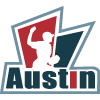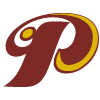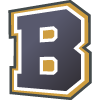Season 25 Midseason Recap
We are at the All Star Break in the 25th season of Kenesaw Mountain Landis, with a lot of teams still in the playoff mix. Some of the usual faces are on top but there are also some upstart teams as well. Let's recap the first half of the season!
American League
Current Playoff Picture:
1. Philadelphia (69-22)
2. Toronto (51-40)*
3. El Paso (47-44)
4. Kansas City (46-45)**
WC1. Augusta (60-31)
WC2. Wichita (51-40)
*currently holds tiebreaker over Wichita
**currently holds tiebreaker over Colorado Springs
In the hunt:
Colorado Springs (46-45)
Sioux Falls (46-45)
Cincinnati (45-46)
Little Rock (44-47)
Texas (43-48)
In the American League, Philadelphia is running away with the best record, but the other three divisions have tight races at the top.
The AL North finished in a tie last year and the same two franchises are tied through 91 games. This time however, the winner of the division is likely playing for the #2 seed as opposed to just making the playoffs. New Wichita owner pathon12 has done a great job picking up where tollison left off guiding the Diamond Dawgs to a tie with long-time Toronto owner shiish, who always seems to have a contender. Both teams are built around their offenses (Toronto 4th in runs scored to 9th for Wichita) but Wichita's pitching staff (15th in ERA) has been better than Toronto's (25th). The division winner could very well be who can improve their pitching in the 2nd half. Sioux Falls continues to improve as efeighny looks to transition them into a contender and shesaid has done a good job rebuilding in his first year in Burlington.
The AL East is already a forgone conclusion with jp_chips again having a great team in Philly. They have the world's #1 offense but also the 5th best ERA at the break. Upstart Augusta (slicknick777) is having a renaissance this year with the AL's second best record built off the world's #2 ERA. Meanwhile Cincinnati (foulballz) has a good run differential but it hasn't translated to their actual record. Buffalo (HWPixHend) will need to do some work the second half of the year to hit the MWR.
In the AL South, justinuv's El Paso is looking for their 6th division title in the past 7 seasons with Little Rock (keithjs) just 3 games back. Their turnaround from one of the worst teams in the world just two seasons ago has been exciting to see and it would be quite a story if they could grab the division crown so quickly. Texas (drewster0) is still in the hunt and has the highest expected winning % in the South but is 4 games back at the break while bruceleefan continues the rebuild in Charleston.
Finally, the AL West is a 2-team tie right now where the loser likely won't make the playoffs. Kansas City (stone7365) is looking for their 2nd straight division title while rklongball is looking to win his first division title with Colorado Springs. It looks like Cheyenne's 24-year playoff streak may be coming to an end unless drwildcat can push the right buttons in the 2nd half. Iowa City (bmsetterstro) might be looking towards season 26.
Biggest Surprise - Augusta Admirals (60-31)
I promise I didn't write this blog post just to talk about my team lol. Augusta lost solid pitcher Jeff Vining to free agency, so they felt compelled to make a trade for BJ Valaika in the offseason. He has surpassed expectations by a mile with a 10-2 record and 2.28 ERA after consistently putting up 4+ ERAs in Houston. Steve Giovanola (11-3, 2.90 ERA) is having a career best year at age 34 while rookie sensation Ordomar Gutierrez (5-3, 2.18 ERA) has been electric for the Admirals. The offense has actually pulled its weight going from 26th in runs scored last year to 10th so far this season. It feels like a regression to the mean is coming for Augusta but they still have a great chance to make the playoffs.
Biggest Disappointment - Cincinnati Butchers (45-46)
In Season 24, Cincinnati was 10th in team ERA and 2nd in runs scored in their homer friendly ballpark. They led the league in HRs each of the last four seasons and they are leading again this season. One problem though is they are now 10th in runs scored because they aren't getting on base as well as last year (0.344 OBP is now 0.320). In particular, Placido Ozuna has a 0.316 OBP this year compared to a career OBP of 0.349 and Luigi Perez has a 0.296 OBP vs a career mark of 0.332. The bigger problem though is their pitching staff. Cincinnati’s team ERA has increased from 3.76 (10th) to 4.23 (17th) due to some individual player regression and losing players to free agency. Alex Lee had a great year last year but has returned to normal this year, Ricardo Guapo is having his worst season in 5 years, and Manuel Cayones is in Texas now. The offense is still good enough to make the playoffs, but can Cincy’s pitching staff turn it around or will the Butchers have to wait until next season to reload?
MVP - Carl Vining, Philadelphia Union
The rookie of the year last year has taken his game up a notch in year 2 with a slash line of 0.309/0.388/0.637 to go with his 32 HRs, 85 RBIs and 20 SBs. He also has 11 plus plays in LF and only 1 error. His teammate Beau Guyer is also having a great year so it could be a two-man race.
Cy Young - BJ Valaika, Augusta Admirals
The ace of Augusta's pitching staff, Valaika has the best ERA in the AL of qualified pitchers (2.28), is 3rd in WHIP (1.07) and has a fantastic 10-2 record.
National League
Current Playoff Picture:
1. Baltimore (61-30)
2. Austin (56-35)
3. Arizona (55-36)
4. Montreal (51-40)
WC1. New Orleans (54-37)
WC2. Fresno (51-40)
In the hunt:
Jackson (50-41)
Salt Lake City (46-45)
Salem (44-47)
In the National League, things are much tighter at the top but there are fewer teams realistically still alive for the playoffs compared to the AL.
In the NL North, omegasupreme's Montreal Marauders have a 5 game lead on sylemark's Salt Lake City Fudds despite both teams having the same expected winning %. Montreal has been fairly balanced as they are tied for 12th in runs scored and 10th in ERA. The Fudds have been more pitching focused as they have the 4th best ERA but the 29th ranked offense. Salt Lake City's offense will need to vastly improve for them to win the division. Meanwhile, Tacoma (quelch) and Chicago (russilini) can start preparing for next season.
In the East, Baltimore (aoscott2) again leads the way thanks to their world best 2.82 ERA. Their offense is lagging behind however at 22nd in the majors. Their division rivals haven't put up much of a fight as London (hofbunter), Trenton (Dufferman), and New York (eazye0007) are all over 20 games back. We will see if any of them are sellers at the deadline.
The NL South sees a tight race between Austin (ericschmidt) looking for their 2nd straight division title and New Orleans (peoria) who had won the past 12 division titles. Both teams have great offenses (New Orleans 3rd in runs scored and Austin 5th) but Austin's pitching staff (3rd in ERA) has set themselves apart from New Orleans' 11th ranked staff. Jackson (Schlemiel) consistently has good records but has had to deal with New Orleans and now Austin on top. Still they have made the playoffs 4 of the last 5 seasons and they have a fight on their hands the second half of this year with their division rivals and Fresno to grab one of those playoff spots. Louisville (Schmidt22) is at the bottom of the division but have still been competitive despite starting the rebuild process. They'll be a team to watch in a few seasons.
In the West, Arizona (loosecc) is having a fantastic season and is not only looking to end their long playoff drought but to get a playoff bye in the process. They are 6th in team ERA, but their offense (#21) needs to pick it up in the second half of the season. Fresno (kenfox) has won the last 4 division titles and trails Arizona by 4 games going to the 2nd half. Right now it feels like they could end up anywhere between #2 and #7 when the season ends. Salem (finsrcool) is still in the hunt for a playoff spot but needs to make a move soon and Las Vegas is a rebuild in process, but new owner casperthegm has done a good job keeping them competitive where previous owners struggled to do so.
Biggest Surprise - Arizona Artists (55-36)
Last season Arizona made a few moves that sparked a 25-win improvement from Season 23. It's those same guys that have been the spark for this year's division leading Artists. Marquis Affeldt (0.302/0.420/0.500) has been Arizona's best hitter thus far. Tyreace Jay (5-2, 2.53 ERA) and Kevin Chung (6-5, 3.97 ERA) have been workhorses out of the bullpen. All 3 came over in a big trade with Baltimore last year. Sadie Turner (8-2, 3.38 ERA) has been their best starter this season and Einer Velazquez is 30 for 32 in saves with a 1.72 ERA.
Biggest Disappointment - Chicago White Sox (34-57)
This has to be one of the most unlucky teams I have ever seen. Chicago's run differential would indicate they should be a 43-win team at the All Star Break but instead they sit at 23 games under 0.500. They have struggled mightily in 1-run games with a record of 10-25. Chicago has seen some players crater this year. Irving Quentin had 48 HRs and an 0.895 OPS last season. He has just 13 HRs at the break and a 0.713 OPS. Harry Ordaz has gone from a 0.843 OPS to 0.647 this season. They also lost Rich Strickland and his 2.09 ERA in a trade (Miguel Alicea has been a nice FA pickup to offset this but Juan Ordonez has struggled). This team should have more wins and they still have some talented players on their roster, but now they have to decide whether to rebuild or reload.
MVP - Phillip Post, Jackson WhoRThzGuys?
This is a really tough call. There isn't a hitter in the NL having some astronomical offensive season right now. So I'm going with someone having arguably the best all around season thus far. Post is tied for the most + plays at any position in the NL with 15 and he's doing it in a very tough position in CF. His slash line of 0.286/0.355/0.538 is fantastic with an OPS in the top 10. He has 21 HRs and 18 SBs so he's been great at the plate and on the basepaths. If he keeps this up the 2nd half of the year, he will have my vote for MVP.
Cy Young - Cozy Kennedy, Baltimore Crab Cakes
It's a tough call between Baltimore aces Cozy Kennedy and Mac Rollins who both have sub-2.00 ERAs, but I'm going with Kennedy who has an insane 0.78 WHIP to go with his 11-3 record and 1.94 ERA.
 vs
vs Austin Jiveturkeys
Austin Jiveturkeys
